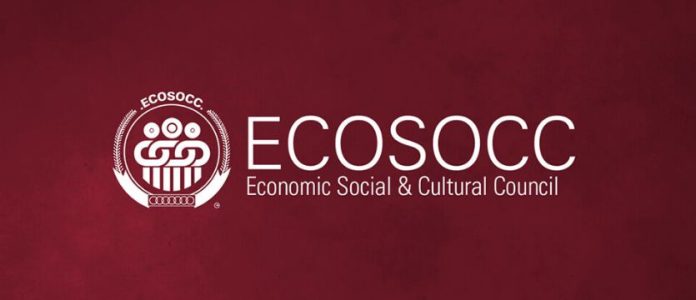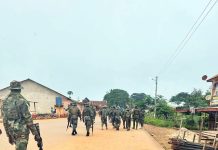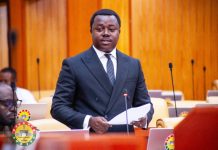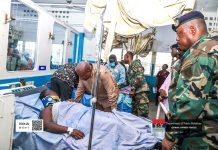Dr Jonathan Sandy, Head of the African Union’s Economic, Social and Cultural Council (AU ECOSOCC) Peace has called for enhanced collaboration among the Electoral Commission of Ghana, the media and security services, as the nation approaches the 2024 General Elections.
Dr. Sandy emphasised that such cooperation is essential for ensuring free and fair elections and for bolstering public trust in state institutions.
Speaking at a multi-stakeholder dialogue on media and security organised by the Kofi Annan International Peacekeeping Training Centre (KAIPTC), in partnership with Kingdom Concept Consult in Accra, he noted that while Ghana has made progress in past elections, there are still lessons to be learned from countries that have successfully implemented electoral reforms.
The AU is prepared to offer guidance and share best practices related to security sector reforms and the media’s role in the electoral process.
He suggested that Ghana should establish standard operational guidelines to enhance public confidence in the electoral process.
Dr Sandy highlighted the importance of collaboration among all stakeholders to ensure a smooth and transparent election, stating, “It is crucial that all parties come together.”
He identified challenges such as the transmission of electoral results, transparency issues, and political identity-based tensions as potential contributors to election-related violence.
Major General Richard Addo-Gyane, Commandant of KAIPTC, underscored the need for a collective effort among stakeholders to maintain peace and stability before, during, and after the elections. “This year presents another opportunity to conduct violence-free elections. It’s vital that everyone plays their part in preventing disruptions,” he said.
The media was urged to combat misinformation that could undermine the peace enjoyed since the inception of the Fourth Republic.
Dr. Sandy charged the media to be cautious in their reporting and to avoid sensationalism that could escalate tensions. He also urged security services to uphold professional standards and refrain from actions that might undermine public confidence in the electoral process.
He emphasised the importance of ongoing information sharing and collaboration among the media, security forces, and other stakeholders, stating “The integrity of election results can only be guaranteed in an atmosphere of cooperation and transparency.”
Dr. Abena Animwaa Yeboah-Banin, Head of the Department of Communications at the University of Ghana, called on the media to educate the public on critically evaluating information, checking the credibility of sources, identifying biases and questioning the accuracy of claims.
Regarding misinformation, she urged the media to allocate resources for fact-checking and debunking false information, particularly on digital platforms.
“The media should strive for balanced and objective reporting, presenting diverse perspectives and avoiding sensationalism or partisan narratives,” she said.
Dr. Yeboah-Banin also encouraged security agencies to work with the media to identify and address election-related misinformation and potential hotspots, fostering peace and trust in the electoral process.
Ms. Princess Sekyere-Bih, Director of Kingdom Concept Consult, highlighted various challenges, including issues surrounding access to information where security concerns conflict with the media’s right to report.
She warned that attempts by security services to maintain order could sometimes infringe on media freedom.
“This delicate balance requires clear guidelines, mutual respect, and ongoing communication between security forces and media representatives to ensure that both security needs and press freedom are addressed without compromising democracy,” she stated.










